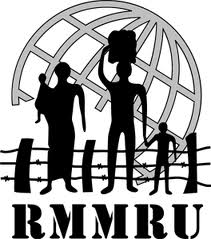Just and Resilient Planned Relocation from Climate Change (JRPRCC)
2022-2025
Governments around the world have been undertaking planned relocations to move people away from areas exposed to frequent or worsening environmental or climatic hazards. These recent relocations build on decades of development-related displacement, moving settlements and people to make way for urban development, dams and roads. Such planned relocations have, however, been widely shown to exacerbate inequalities, leading to unjust and uncertain outcomes among relocated communities without legitimate processes. Given the growing impetus to protect populations from climate change impacts, this project seeks to integrate climate justice into planned relocation. It will develop an evaluative framework to examine the circumstances under which a range of planned and involuntary relocations are transformative – for whom, in what ways and with what implications for justice in the context of climate change. The outcome will be an evaluative tool for just climate-induced planned relocation. The project will develop these concepts through engagement with climate justice and environmental justice framings, calibrated through observation of real-world issues of distributive and procedural justice in planned relocation in the Ganges-Brahmaputra-Meghna (GBM) Delta, a densely populated climate hotspot in Bangladesh. The evaluative framework will therefore be tested through participatory action-research methods with content analysis, expert interviews and focus groups to gather empirical evidence on fairness of processes and implementation of planned interventions in Bangladesh to evaluate a variety of relocation outcomes. Critically, the project interrogates the scope of the concept of planned relocation to incorporate rural and built environments, and the full spectrum of incentivised to coerced movements. The resulting framework can help develop, test and fine-tune more resilient, just and equitable planned relocation policies and practice. Furthermore, this tool can empower climate-vulnerable people and communities to make informed decisions, build coalitions and advocate together to avoid repeating past injustices. This project is a collaboration between the University of Exeter, in the UK, and the Refugee and Migratory Movement Research Unit, in Bangladesh. The project is funded by International Development and Research Cooperation (IDRC).
Specific research objectives are:
1. To support socially differentiated procedural and distributive justice for communities experiencing climate-induced planned relocation.
2. To support learning from past development- and climate-induced planned relocation initiatives in Bangladesh.
3. To enhance the engagement of international actors in the design and implementation of just climate-induced planned relocation in Bangladesh.



